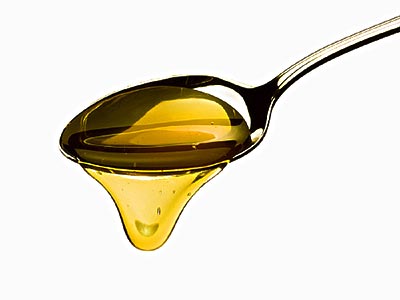蜂蜜
The Processing of 蜂蜜
Origin
The honey made by bee Apis cerana Fabricius or A. mellifera Linnaeus of family Apidae.
Location
Most areas in China.
Harvest
Collected from spring to autumn.
The actual smell and taste
Strongly fragrant, extremely sweet.
Best quality
Waterless, oily, grease-like white to light-yellow, or orange-yellow to brown yellow. It flows down continuously to fold up while provoked by a stick. No stinking smell and peculiar smell, and purities.
Processing
Unprocessed or boiled.
The Effect of 蜂蜜
Property
Sweet, neutral; spleen, stomach, lung and large intestine meridians entered.
Actions
Tonify qi of middle energizer and lung, relieve spasm and alleviate pain, moisten lung to relieve cough, moisten intestine to smooth stool.
Indications
A. Spleen and stomach deficiency, pain in abdomen
It is indicated for spleen and stomach deficiency, spasm-pain in abdomen because it can tonify spleen and stomach, and relieve spasm and alleviate pain. For spleen and stomach deficiency, spasm-pain in abdomen, it is applied singly, or combined with middle energizer tonics and pain-relieving herbs, such as Bai Shao and Gan Cao. For fatigue, poor appetite due to spleen and stomach deficiency, it can be used singly as nutrition tonifying herbs for dual usage of food and medicine, nevertheless, it is mostly taken as excipients in pills or pastes of tonifying medicine, or assistant material in stir-baking spleen and qi tonics.
B. Chronic cough due to lung deficiency, dry cough due to dryness in lung
It is indicated for chronic cough, shortness of breath, fatigue, dry throat with little sputum due to lung deficiency, or dry cough without sputum or with little sputum due to lung injury being dryness, because it can tonify lung qi, and moisten lung to relieve cough. For chronic cough due to lung deficiency, dry cough due to dryness in lung, it can be used singly. Furthermore, it is commonly combined with herbs of tonifying qi, nourishing yin, moistening, relieving cough for the former condition, for instance, it is used with Ren Shen and Sheng Di Huang in Qiong Yu Gao from Hong Shi Ji Yan Fang ( Hong's Experiential Prescriptions); and it is combined with herbs of nourishing yin, clearing lung, moistening lung, relieving cough for the latter condition, such as E Jiao, Sang Ye and Chuan Bei Mu. Besides, it is also used as excipients in pills or pastes of moistening lung to relieving cough and assistant material for drug procossing.
C. Constipation due to dryness in intestines
It is indicated for constipation due to dryness in intestines, because it can promote conduction of intestines through tonifying qi, and moisten intestine to smooth stool. For constipation due to dryness in intestines, it is taken after mixing with water, or combined with herbs of nourishing yin, supplementing blood, moistening intestines and smoothing stool, such as Sheng Di Huang, Dang Gui, and Huo Ma Ren. It also can be made into suppository to smooth stool for fitting in anus, which is Mi Dao Jian from Shang Han Lun.
Besides, it has action of detoxification. It can reduce toxicity when decocted with herbs in Wu Tou category. For intoxicating by herbs in Wu Tou category, it applied in large dosage can reduce the toxicity.
Dosage and Administrations
Decoct or mix with water, 15~30 g, 30~60 g in large dosage, an appropriate dosage for external use.
Cautions
It is used with cautions in cases of dampness obstruction, phlegm stagnation, loose stool or diarrhea because it can help dampness, and induce abdominal fullness
